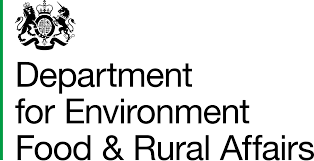PRESS RELEASE : Dr Elizabeth Sidwell to Wellington Academy [June 2011]
The press release issued by the Department for Education on 20 June 2011.
Schools Commissioner Dr Elizabeth Sidwell’s speech to Wellington Academy.
I’ve not had much time to study or enjoy the view, but one thing is for sure – it’s exciting. And it is nationwide – I’ve already been to Darlington – and I’ve commissioned a set of maps in the Department to help me take in the whole educational landscape to ensure we focus on the pockets of greatest need and use those areas of greatest strength.
Thank you for inviting me to speak today. It is a privilege to be here both in my role as Schools Commissioner and also as a Governor of Wellington College. I was involved in the Academy from the very beginning and it is wonderful to see how much has been achieved by Andy Schofield and his team in partnership with Wellington. It shows the way forward.
It is also an honour to follow Lord Adonis. Andrew was an inspiration to work with when he was in the Department and always understood that academies were the solution to underperformance.
My passion for the past 20 years has been to raise standards in our most deprived communities and so close the attainment gap through bringing independence across the state sector via academies and federations. I know this works – I’ve done it, and I’ve seen it. Independence is energising and brings sharp accountability. It is good for schools and for children.
I know children only have one chance, one very small window and we need to work fast to open up opportunities for them now. At Haberdashers we took on four schools in five years. Many chains are now working much faster than that. There really is no time to wait.
We have some of the best schools in the world, and we know:
The best education for the best is the best education for all.
Our challenge is to make this a reality. My role as Schools Commissioner is to deliver it through brokering partnerships and creating academies and free schools, particularly where underperformance is endemic. This means liaising with Local Authorities, heads, sponsors, governors and entrepreneurs – and confronting failure.
I have been greatly encouraged by the deluge of emails and calls I have received since the announcement of my role. It is proof that there are many people out there wanting to engage in the process and to be partners in this transformation agenda.
Since the Academies programme was extended almost a year ago, it has gained momentum at an astonishing pace and today a third of all secondary schools are either academies, or are in the process of becoming one. There are now over 600 academies, over two-thirds of which have opened since September 2010 – that’s equivalent to more than two every working day.
There is a real will across the country to take up the opportunities that are now on offer, but there is much more to do, and quickly. And I think in some ways the challenge we face now is even greater.
For me, the following quote sums up where we are now with academies:
The future is already here – it’s just not evenly distributed.
We need to scale up what has already been achieved – we need to empower the converter academies to help with the weaker schools; we need to focus on primaries and special schools; we need to raise the floor standards; we need more sponsors.
Partnership is the way we will succeed.
My role is to challenge local authorities and schools – including academies – that are not performing. There is no preferential treatment.
My remit includes:
- brokering academy arrangements between schools and established sponsors
- encouraging and recruiting more potential academy sponsors
- enthusing leaders of good schools to go for academy status and to partner other schools
- raising the profile of Free Schools among prospective proposers – free schools are a very important part of the solution, responding to parental demand.
I will be fair to schools and LAs. I know how great the challenge is in some areas. I know that teachers, heads and governors across the country are working hard, desperately trying to improve their schools and I’m on their side.
But I will be honest when schools are not improving fast enough. My direct experience of transforming a good school to great, turning round a seriously failing school, transforming primaries and setting up a new school means I am not asking anyone to do what I, and so many others across the country, have not already done.
There are a number of priorities in the view of the Office of the Schools Commissioner moving forward, but today I’d like to focus on three important areas: primary schools, sustainability and leadership.
Firstly, primaries.
Earlier I quoted some ‘stand out’ figures about the progress of academies so far. There’s another figure that I think is memorable, but for all the wrong reasons.
There are currently 1,400 underperforming primary schools. That’s eight per cent of primary schools in England – and at least 300,000 children being let down.
Children need access to a high-quality education from the first day they arrive at school. Primaries have a vital job to do – if we don’t get it right, then we are severely hampering a child’s progress and the secondary school’s ability to perform. Primary schools are the bedrock of our education system – if we provide children with a good education early on, then the transition to secondary will be that much smoother, and they are more likely to succeed.
We are seeking models of transformation for struggling primaries: primary federations; primaries joining existing chains; and all-through solutions. Outstanding primaries will be very important in leading primary groups. I personally favour cross-phase partnerships wherever possible because they provide economic and educational benefits.
At Haberdashers we were able to provide:
- free lunch for all primary children
- cross phase teaching developed naturally to the benefit of all
- a seamless transition from year 6-7 to ensure standards did not dip, as is often the case.
I have heard concerns expressed about secondary specialists and secondary chains taking on primaries. We should remember they are all schools and that the teaching will always be led by primary specialists.
Merlin Primary School in Lewisham experienced a fast rate of progress once it joined a bigger organisation, the Haberdasher’s Federation. We were able to root out inefficiencies, give access to wider Continuing Professional Development and provide many more opportunities to broaden the curriculum. But seemingly small, simple changes also had a big impact – one change that was described by the primary head as ‘dramatic’ and ‘incredible’ was the positive effect of ensuring that all pupils wore a formal school uniform.
So the focus is now on primaries, and this is why we have raised the floor standard to 60 per cent. We will ensure that these standards are fairly applied but I am absolutely determined that we make headway in addressing this issue.
We need to future-proof our primary and our secondary schools. This brings me to my second issue – sustainability.
School improvement must be sustainable. Quick fixes – sticking plasters – aren’t good enough, for example interventions for year 11 and year 6. I want to see evidence of partnerships, of schools working together to share expertise and to provide local solutions that will endure. We need successful schools, including converters and independent private schools, to help support and lead and to commit themselves for the long term.
For example, Haberdashers Hatcham College became one of the most successful schools in the UK. It partnered a second academy in 2005 to become Haberdashers’ Knights. The school it replaced, Malory School in Lewisham, was seriously failing. Five years on, the latter has 1,500 students including a primary and is oversubscribed. Academic performance is good and sustained, and the youngsters are proud of their school.
Haberdashers’ Knights is not alone. There are great federations across the country that are making outstanding progress, working together to raise standards for the long-term.
Also, good governance is all important for raising and sustaining standards. Governors need to understand their vital role in monitoring standards and sponsors can make a positive contribution here – they bring a business perspective to school boards.
So we shall add to and diversify the pool of sponsors. Business leaders like Lord Harris and successful colleges and schools like Wellington College give struggling schools professionalism and a brand of success that is vital in lifting self-esteem and performance. It is all about association with success. For this reason I am very pleased to be in discussion with HMC regarding potential sponsorship of academies and a number have already led the way including Dulwich, Sevenoaks, Woodard and of course Wellington.
And all schools performing well that are converting to become academies have made a commitment to work with other schools and share their expertise – so far over 500 schools are being supported by converter academies. Here we have the opportunity to establish further school to school sustainable support through these outstanding independent heads and their teams.
This brings me to my third issue – a legacy of future school leaders.
This is fundamental. We need a steady flow of good leadership. We all know that great teachers make a great school and the most important job a head does is to appoint the staff. Of course the most important task of the sponsor or governors is to appoint the head.
That is why we are supporting organisations like Teach First, Teaching Leaders and Future Leaders. They are bringing fresh blood into the school system and are focusing on the most challenging schools. It is vital we bring outstanding leaders of schools and subjects to our most challenged schools because they understand what excellence looks like. These people will ensure exciting and sustainable progress is made.
In addition, federations and chains understood early the importance of great leaders in their schools. Many appointed Deputies to their new schools as a result of careful succession planning. Developing leaders should be the norm in all schools.
The National College is working with us to establish Teaching Schools and develop flexible accreditation for heads. It has been a disgrace that our children in greatest need of inspired teaching have had to accept that “care” was more important than academic attainment: that they had to settle for satisfactory because their schools could not attract the best.
Those of you who have seen the film ‘Waiting for Superman’ know that the poorest families will do anything to have access to the best teachers.
Academies offer a multitude of opportunities to the staff who work in them, at all levels. Federations offer posts across schools and transfers. All raise the bar in terms of excitement and expectation, and therefore attainment. Academies are attracting the best teachers and leaders.
I feel very strongly that today’s school leaders have a responsibility to ‘grow’ the school leaders of tomorrow – to seek out and to nurture talented teachers and encourage them to take on leadership roles. I set up a ‘teaching school’ ten years ago in partnership with local schools, and it really inspired the staff. They wanted to be involved.
Over the coming months I will be in schools across the country; a strong advocate for a good school for every child, and a strong advocate for academies and free schools.
We’re on the threshold of making the best there is available to every child, but we need to work in partnership to deliver this. So please do get in touch – you can contact me through the Office of the Schools Commissioner at the Department.
I look forward to working with you.
Thank you.
Dr E M Sidwell CBE
Schools Commissioner



